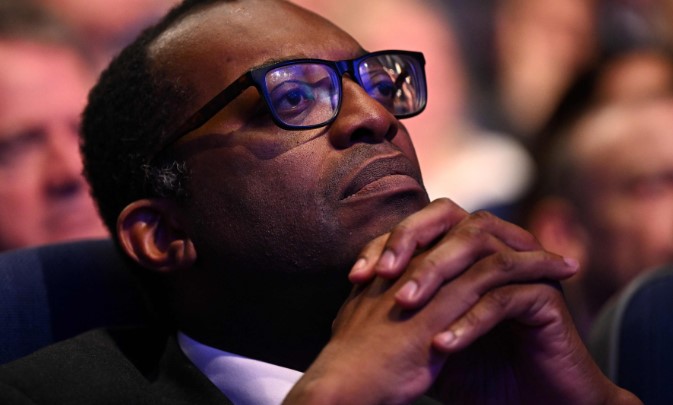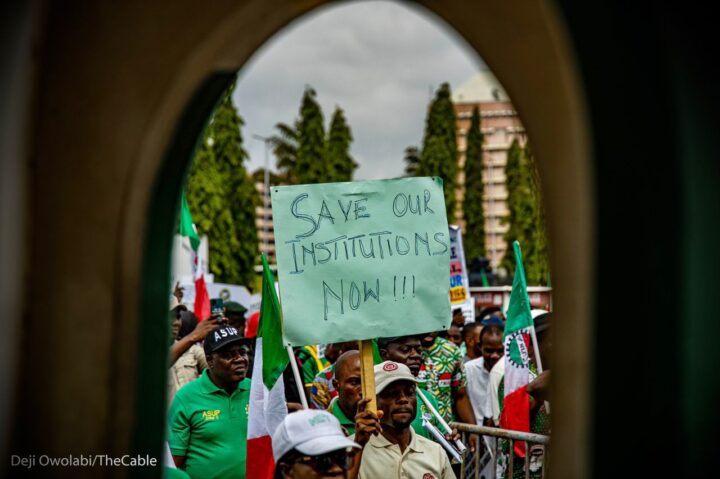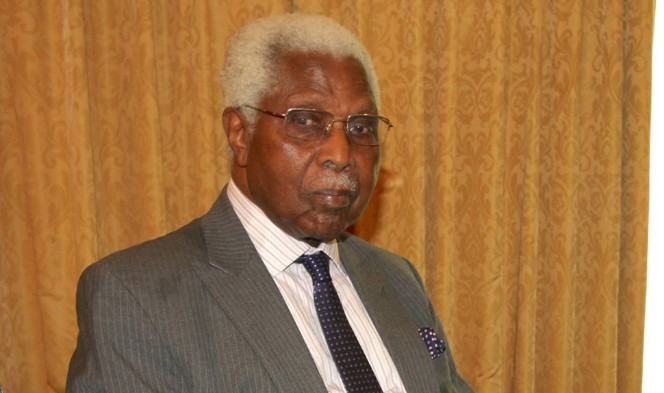Many people expressed pity for Kwasi Kwarteng as he was summarily thrown under the bus by PM Liz Truss on October 14, 2022, for the collective bumbling engaged by the two of them leading a wolf pack of entitled conservatives who are totally out of touch with reality. I was not one of those who expressed that pity. Kwarteng is probably what they call a coconut in the UK (brown outside, white inside). This is reflected in the way such folks think but could also manifest in self-hate in extreme circumstances. Whereas I was pleasantly amused that a black man became the Exchequer in the UK (perhaps the highest rank ever attained in the British government by someone who looks like me), the euphoria has been short because he actually is one of those who thumb their noses at the poor or believe that people are poor because they choose to. This is evident in the kind of proposal for which Kwarteng is now famous, and which Truss and the new Exchequer will have to walk back in the coming days – if she’s wise.
The question on right-thinking people’s minds is; “what were they thinking”? How can these young Tories get such a golden opportunity and fritter away their goodwill in barely a matter of days? Is the opposition Labour Party of the UK going to be able to take advantage of this snafu? They are already 30% clear in the polls, I understand. And most importantly, are we taking down the right lessons here in black Africa?
Kwarteng was born in Waltham Forest in 1975. He’s 47 years old now. His father was an economist in the Commonwealth Secretariat, and his mother was a barrister. He was educated at Eton, won an award for history at Harrow, and then proceeded to Harvard and Cambridge. He would later work at JPMorgan and a slew of hedge funds. Talk about privilege. The challenge is how do we ensure that guys like these keep their feet on terra firma and pluck their brains from cloud nine?
But he is not alone. This political season, we have been exposed to a lineup of interesting folks like this. Usually from minority backgrounds, these members of the Conservative Party come with very interesting ideas that could be toxic if left unchecked. They have now got our attention and we must think of their implications for our economy and well-being. One of ours, Kemi Badenoch, is a principal character and almost made it to become the prime minister of the United Kingdom herself. She really got the attention of Nigerians when in her major pitch for the PM position she stated: “I grew up in Nigeria and I saw first-hand what happens when politicians are in it for themselves when they use public money as their private piggy bank when they promise the earth and pollute not just the air, but the whole political atmosphere with their failure to serve others. I saw what socialism means for millions: poverty and broken dreams… I chose to become a Conservative MP to serve, and I chose this country because I can be who I am and I could be everything that I wanted to be”.
Advertisement
Perhaps beyond what she said is the condescending, disdainful and indeed hateful tone that seeped out of this statement which she gave at the very pinnacle of her ambition. She threw her country, her people, and her race under the bus so brusquely. This is the daughter of a medical doctor and psychology professor, born in the UK, and lived on Victoria Island. Perhaps the anger that reeked through is one of those from spoilt, overprivileged folks which has now gone viral in today’s #EndSARS Nigeria. I asked her then where socialism was in Nigeria. In the UK where she extols so much, they have the DOLE (free money for the unemployed), food banks for the homeless, the NHS for free health and free standard public schools which our people now ‘Japa’ to enjoy, and council houses for the homeless, among many more vestiges of socialism, none of which is available in poor Nigeria. Did we deserve that from Kemi? I don’t think so. But she, like Kwarteng, never ceases to chant her undying belief in ‘market forces’ and a non-existent ‘invisible hand’, which ensures a ‘trickle down’ of the goodies. Pure, unadulterated, zombie economics – dead ideas which had been buried but still manage to walk around haunting poor economies by possessing a few overfed and soulless folks who are detached from reality.
Then there is Priti Patel. As home affairs minister, she proposes asylum-seekers be dumped in Rwanda pending when their applications are being reviewed. She is of Indian-Ugandan heritage, but she is totally anti-immigration and so blindly pro-capitalism, like Kemi and Kwarteng. She was one of those hardline COVID advocates who pushed for several lockdowns while the Boris Johnson government partied. She pointedly accused minorities of putting the UK at risk of COVID and has targeted Nigerians specifically, even defending the Irish fraudsters called P&ID (Process and International Development), who tried to gyp Nigeria out of $6 billion. She went blasting Nigeria in the most (again) condescending manner, even threatening, and basically notifying investors from her high perch, of the need to be wary of Nigeria in the most unkind manner. The UK courts would thankfully later see through the scam that was/is P&ID. Patel apparently had a pecuniary interest in the deal. What a nerve for such a compromised fellow to lecture anyone about corruption!
Rishi Sunak isn’t any better if you ask me. Also excessively pro-capitalism, he forms perhaps part of the quartet of ideologues. He has pushed strongly for anti-immigration policies and tax cuts for the rich. While gunning for the PM job all he promised was to deport more foreigners who committed little offences. These guys always feel the need to sound and act whiter than white, such that the same white people have to save us from their extremism. I kind of agree with some of Kemi’s rhetoric that blacks should find strength and not keep playing the victim game, but she may be wrong that all blacks in the UK went there of their own volition. Some of the slaves hauled from Africa must have hopped off the boat in England too. The venom against her homeland is totally unnecessary.
Advertisement
But I’m more concerned about how this rubs off on our economics. Certain Professor Stefan Dercon of Oxford University was recently in Nigeria to present his book; ‘Gambling on Development – Why Some Countries Win and Others Lose’. In it, two important messages stand out for the purposes of this article. One, Africa needs to produce what it needs/uses by force (in other words we are presently locked in a foolish concept of world trade that cripples our initiative and makes us supply at best only raw materials to the rest of the world, and so we are totally dispensable). And secondly, Nigeria must not dare to float its currency else she’ll be royally screwed. He recommended the continuation of the managed floating regime. These are the messages that lowly, undereducated folks like me have laboured to pass across for way too long, while the Oxbridge and Harvard-educated, ex-JPMorgan and Goldman Sachs lot have been aided by their pedigree and powerful alumni godfathers to get into the right positions in Africa, from where they only hold down the continent.
And so, as it pertains to the economies of black African countries, the issues here are:
- The need to rethink economics for the world and for sub-Saharan Africa especially. If the UK buckled under the uncaring weight of neoliberal economics, the fate of Africa is better imagined.
- We need to begin to think of the fates of the vast majority of our poor people who have been shut out of the modern economy. Unleashing positive economic inclusion amongst these folks is what will propel our land to greatness. We have focused too long on financial inclusion. Economic inclusion is the koko – as they say on our streets.
- For too long, those who have run our economies in Africa have been run by people of secondment from the World Bank, IMF, Goldman Sachs and JPMorgan (to a slightly lesser extent). It is apparent with the fiasco around Tory quartet described above that elite education may be a great disadvantage to Africa. We need grounded people. Good English or American accent and degrees from their universities may not amount to real intelligence, and perhaps more importantly, to love for country or patriotism.
- The field of economics has been shutting out new ideas for too long now. There has been a steady process of abortion of innovative economic ideas through rigid gatekeeping by top journals that see to it that published ideas must conform with orthodoxy. Therefore, since the usual ideas of neo-liberalism have got old and died, they could only moonlight as zombies. It is the incestuous and perhaps occultic interactions between dead ideas and the modern economy that the British markets reacted violently to some days back, leading to a near crash of bond markets and pension funds. Alas for Africa, these ideas and their purveyors are still thriving, and are holding our economies in a vice grip – indeed their knees are on our necks
May God save us.
Advertisement
Views expressed by contributors are strictly personal and not of TheCable.
Add a comment







